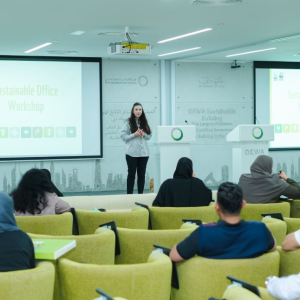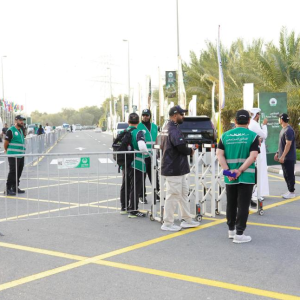In a small, cozy apartment tucked away in Dubai’s bustling Deira neighborhood, 34-year-old Wang Mei taps on her phone. With a smile, she opens WhatsApp, clicks a familiar name, and in a few seconds, she hears her mother’s voice from thousands of miles away in Guangdong, China.
But behind that one moment of joy lies a long story of struggle, adaptation, and determination — one that many Chinese expats in Dubai live every single day.
WhatsApp voice and video calls are banned in the United Arab Emirates, including Dubai, as part of the country’s strict VoIP (Voice over Internet Protocol) regulations. For Chinese expats like Wang, this ban adds yet another emotional hurdle to the challenge of living abroad. And the only reliable solution many have found? A VPN.

Living Miles Away from Home Isn’t Easy
Wang moved to Dubai five years ago to work in the hospitality industry. “I came here with big dreams,” she says. “I wanted to grow my career, learn new skills, and earn better money. But I didn’t expect the loneliness.”
Wang’s story is echoed by thousands of others who leave China to work in the UAE. From restaurant chefs to IT professionals, many chase opportunities in Dubai’s thriving economy. But while the skyscrapers shine bright and salaries often look attractive, the emotional toll of being far from home can’t be measured in dirhams.

“Family means everything to us,” says Liu Zhang, a 42-year-old logistics manager based in Jebel Ali. “Back in China, we’re used to being very close. You talk to your mother, sister, and uncle almost every day. That connection keeps us going.”
The Struggle: Connection Lost in Translation
In most parts of the world, making a WhatsApp call is as easy as breathing. But in the UAE, internet calling through apps like WhatsApp, Skype, and FaceTime is restricted. This means voice and video calls don’t work — unless you use a licensed local service or a Virtual Private Network (VPN).
For expats from China, this was a major culture shock.
“At first, I felt helpless,” Wang admits. “I couldn’t see my nephew’s first steps. I missed my sister’s wedding. I felt like I wasn’t part of the family anymore.”
While regular texting and photo sharing still work, it’s the lack of real-time voice and video that hurts most. For people whose lives are divided by time zones and borders, a simple call becomes an emotional lifeline.
The VPN Solution: A Risk, But a Relief
This is where VPNs — Virtual Private Networks — come in. A VPN allows users to mask their real location and access services that are otherwise restricted in the country. Though not technically illegal for individual use, the UAE discourages VPN usage to access VoIP services and imposes strict penalties on misuse.
Still, many expats turn to VPNs as their only bridge home.
“I learned about VPNs from a colleague,” says Liu. “It was a game-changer. I could finally hear my daughter say ‘I miss you, baba’ without delay or distortion.”
Popular VPN providers like NordVPN, ExpressVPN, and Surfshark offer fast and secure connections, often with server locations in nearby countries. Many Chinese expats now rely on these services — not to break the law, but to stay human.
“It’s not about hiding something,” says Wang. “It’s about surviving emotionally.”

How VPNs Changed Their Lives
Since Wang started using a VPN last year, her relationship with her family has improved. She talks to her parents almost daily, watches her niece grow up through video calls, and even hosts virtual family dinners.
“I cook noodles here, they cook there, and we eat together on a video call,” she laughs. “It’s not perfect, but it feels like home.”
VPNs have also helped Chinese entrepreneurs in Dubai stay connected with business partners and clients back home.
“Communication is everything,” says Li Jun, who runs a small import-export business in Dubai’s Dragon Mart. “Without VPN access, I would lose deals, miss meetings, and feel out of sync with China’s fast-paced market.”
Is Using VPNs Legal in Dubai?
This is a common concern among expats. The truth is — using a VPN is not illegal in the UAE, but using it to commit a crime or access restricted services (like WhatsApp calls) can be considered a violation.
The UAE’s Telecommunications and Digital Government Regulatory Authority (TDRA) has warned that VPN misuse could lead to heavy fines — from AED 500,000 up to AED 2 million — especially if used for illegal activities.
But everyday users like Wang and Liu, who only use VPNs to stay in touch with family, say they’re careful. “I don’t use it for anything else,” Wang says. “Just to talk to my parents. That’s it.”
Experts also recommend choosing reliable VPN services with strong encryption and no logs policy to stay secure and discreet.
Current Happenings: Adapting and Thriving
Despite the communication hurdles, the Chinese expat community in Dubai is thriving. Cultural associations, weekend community meet-ups, and WeChat groups keep people connected locally. Many have turned their struggles into strengths, building small businesses, learning Arabic, and even investing in property.
Wang recently got promoted to guest relations manager at her hotel, while Liu plans to open a chain of delivery kitchens serving authentic Chinese street food.
“I miss China every day,” Liu says. “But Dubai has taught me how to grow, how to fight, and how to find joy in small things — like hearing your mother’s voice.”
The Bigger Picture: Technology as an Emotional Bridge
The debate around internet freedom, censorship, and VPN use is ongoing. But one thing is clear — for millions of expats, VPNs are not a luxury; they’re emotional oxygen.
In a world where work pulls people away from loved ones, the ability to connect instantly is not just about convenience. It’s about survival, happiness, and mental well-being.
“Technology has made the world smaller,” says Wang. “And sometimes, a tiny VPN icon on your phone can mean the world.”
Tips for Chinese Expats Using VPNs in Dubai
- Choose a reputable VPN: Look for services with good reviews, strong encryption, and a no-log policy.
- Avoid free VPNs: They often compromise speed and privacy.
- Use wisely: Limit VPN usage to personal communication and avoid using it for business activities that could violate local laws.
- Stay updated: Rules and regulations around VPN use can change. Stay informed through official UAE portals or local news.
- Keep your family educated: Teach parents or relatives back in China how to use WhatsApp or video call apps to make communication smoother.
Final Thought: Staying Connected, Staying Strong
The journey of a Chinese expat in Dubai isn’t just about chasing success or earning in dirhams. It’s about balance — between dreams and duties, between being present and being connected.
VPNs may be a small tech tool, but for many like Wang and Liu, they’ve made all the difference. They’ve helped bridge the emotional gap, one WhatsApp call at a time.
And in a world that often forgets the emotional cost of migration, their stories serve as a warm reminder: connection is not just a luxury — it’s a human right.
Do follow UAE Stories on Instagram













